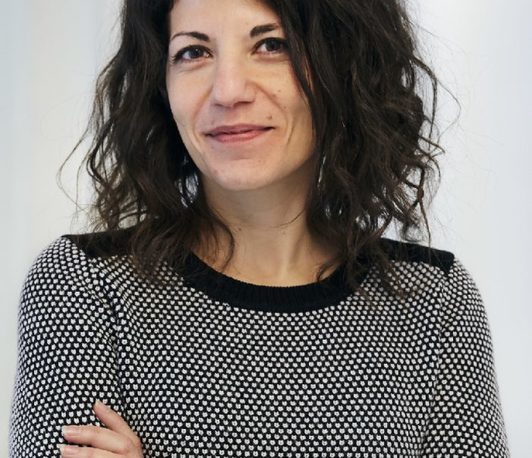Virtual Max Planck Colloquium: Prof. Raffaella Buonsanti, Colloidal nanocrystals to advance catalysis and energy technologies
Virtual Max Planck Colloquium: Prof. Raffaella Buonsanti, Colloidal nanocrystals to advance catalysis and energy technologies
- Datum: 17.11.2022
- Uhrzeit: 14:00 - 15:00
- Vortragende(r): Prof. Raffaella Buonsanti
- Laboratory of Nanochemistry for Energy (LNCE), Institute of Chemical Sciences and Engineering, École Polytechnique Fédérale de Lausanne
- Ort: Max-Planck-Institut Magdeburg
- Raum: Virtuell via Zoom
- Kontakt: sek-pse@mpi-magdeburg.mpg.de

In der Kolloquienreihe zu den „Physikalisch-Chemischen Grundlagen der Prozesstechnik“ mit international führenden Wissenschaftlerinnen und Wissenschaftlern werden neue Herausforderungen auf diesem und benachbarten Forschungsgebieten identifiziert und Potentiale ausgelotet.
Das Kolloquium wird online via Zoom übertragen.
Abstract
Affordable clean energy and climate action are two of the sustainable development goals set by the United Nations to be achieved by 2030. The vast majority of energy technologies relies on nanomaterials and their progress is strongly connected to the ability of materials chemists to tune their property and function-dictating features (i.e. size, composition, composition, morphology).
In this talk, I will present our recent group efforts towards the synthesis via colloidal chemistry of atomically defined nanocrystals (NCs) with properties of interest for energy conversion applications.
The first part will focus on our studies on the synthesis development and formation mechanism of Cu NCs. I will illustrate how these NCs with precisely tunable shapes, sizes and interfaces serve as ideal platforms to advance our current knowledge towards improved selectivity in the electrochemical CO2 reduction reaction. I will then share our results evidencing that these NCs can sustain their catalytic activity and selectivity at technologically relevant conditions, therefore might also offer practical solutions.
The second part will be dedicated to our colloidal atomic layer deposition (c-ALD) method to grow tunable oxide shells around different inorganic NC cores. I will discuss the formation mechanism of the shell by sharing our recent insights into the surface chemistry. I will also demonstrate some of the enabled applications, such as the improved stability of the colloidal ink, which is particularly important in the context of quantum dot-based LEDs and solar cells, and the enhanced resistance against harsh environment, which is relevant for catalytic applications.
Über die Sprecherin
Professor Raffaella Buonsanti is an Associate Professor in the Department of Chemistry and Chemical Engineering at EPFL. She leads a multidisciplinary research program which spans from nanoscience to materials chemistry and electrocatalysis. She has received an ERC Starting Grant in 2016 and an ERC Consolidator Grant in 2022 in addition to numerous awards, including the Swiss Chemical Society Werner Price in 2021 and the European Chemical Society Lecture Award and the Royal Chemical Society ChemComm Emerging Investigator Lectureship in 2019. She is also the chair of the Nanoscience Subdivision of the ACS Division of Inorganic Chemistry and is an Associate Editor of ACS Catalysis.